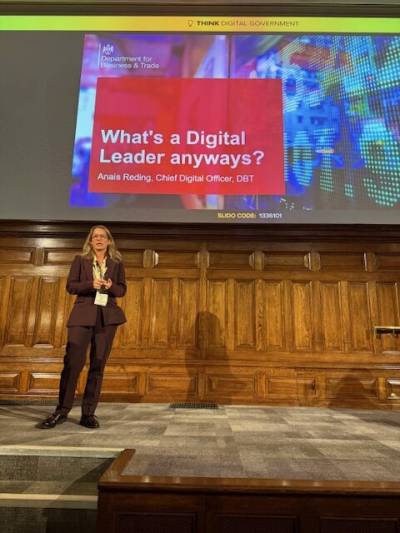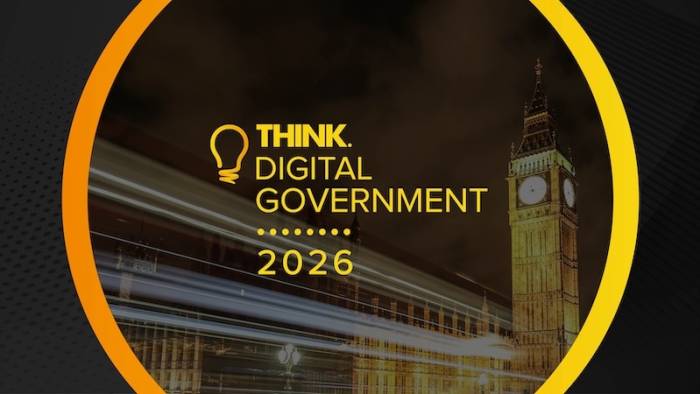When government first set out its ambition for ‘digital by default’ public services, few could have imagined how dramatically the digital landscape would evolve. The rise of AI, automation and data sharing has opened up new possibilities for personalised, connected public services – while also raising urgent questions about digital inclusion, privacy and ethics.

These topics, among many others, were under the spotlight at Think Digital Government in London, Wednesday.
Think Digital Partners founder Matt Stanley described the event as inspiring: “Where insight and opinion was shared from a host of brilliant speakers, many of whom were speaking for the first time on our conference programme. From the excellent keynote from Anais Reding, CDIO at the Department for Business and Trade, to a fascination fireside chat with the brilliant Claire Fry the director of functional integration at the Ministry of Defence, to a multitude of interesting and authentic panel discussions, the day delivered on every level.”
In her keynote, Reding (pictured) argued that while early digital leadership focused on building efficient online services, that approach is no longer enough to meet user expectations or deliver on the government’s broader mission.
Reding called for a shift in mindset from digital leadership to service leadership, where technology, data, and policy work seamlessly to deliver outcomes across the entire user journey.
Elsewhere, Fry spoke about digital’s place at the centre of mission delivery at the MoD. For that to happen, she said, there must be a “one defence mindset” to break legacy silos across CIOs, pair investment with dis-investment, and couple cutting-edge architectures with basics like cyber hygiene and digital literacy for everyone – from four-star leaders to frontline operators.
AI, Co-Design and the Push for Digital Talent
There were expert panel sessions too, comprising public and private sector digital leaders. One which focused on agentic AI’s potential to revolutionise public services, urged public bodies to start small, prove value, and build out from there. They stressed the importance of collaboration and open standards, developing shared “orchestrators” and reusable agents that can work across councils rather than duplicating effort.
Above all, the group called for co-design with service users, especially those with lived experience, and a renewed focus on empathy and accessibility. Said Julian Patmore, service director, digital & customer access at Peterborough City Council: the goal is “digital where possible, but human where it matters.”
If you liked this content…
Another panel session tackled a tough brief: building digital capability under pressure.
Among the panellists, NHS England’s Trilly Chatterjee argued for explicit capability signals and profession-led scaffolding so teams can actually thrive, while Hippo’s Rhianna O’Donoghue pressed suppliers to upskill the workforce as they go.
The key takeaway? Funding matters – but culture, contracts and standards will decide whether digital talent delivers.
Trust, Sovereignty and the Next Wave of Digital Government
The final discussion of the day asked, ‘What does the future of digital government look like?’ The vision offered up by the expert panel of digital leaders is one that hinges on public trust.
The core questions, said Amanda Payne, client success and strategy director at GAIN, are “How do we keep building trust in public services? How do we keep the human at the centre of all the decisions that we’re making?”
Environment Agency CDO Peter Connolly warned, his “red line is allowing AI to decide at what point somebody should receive a flood warning”; automation can help draft messages and interpret forecasts, but humans must still own life-and-death decisions.
The future they imagine is interoperable and sovereign (less locked into a handful of big vendors), powered by data to prioritise resources and prevent demand before it hits crisis point, and underpinned by a workforce where “digital is not a silo anymore.”
That means investing in everyday digital literacy, experimenting with AI tools in the hands of frontline staff, and accepting that leaders must become, in Connolly’s words, “That inquisitive mind, and… that irritating person” who keeps pushing for change.











